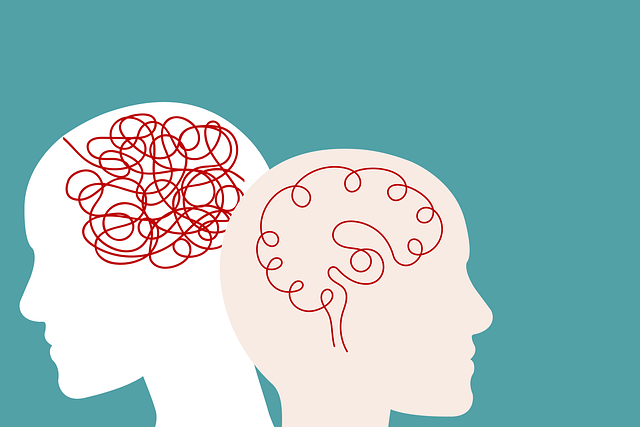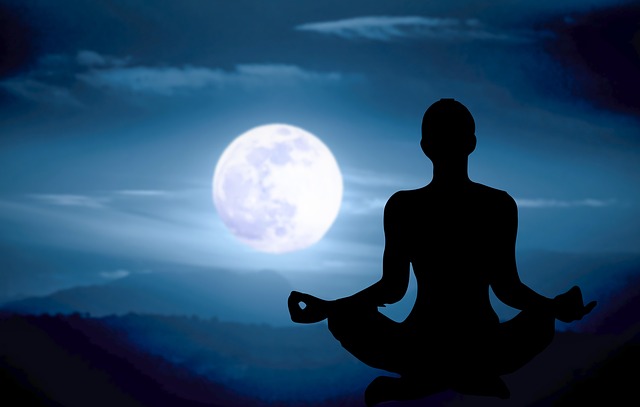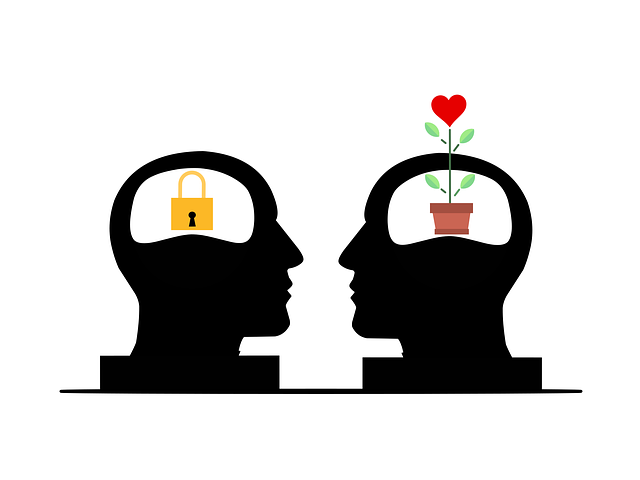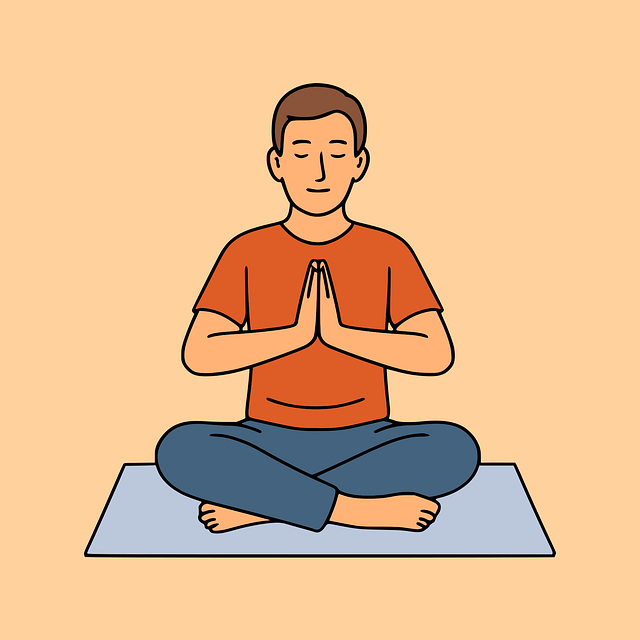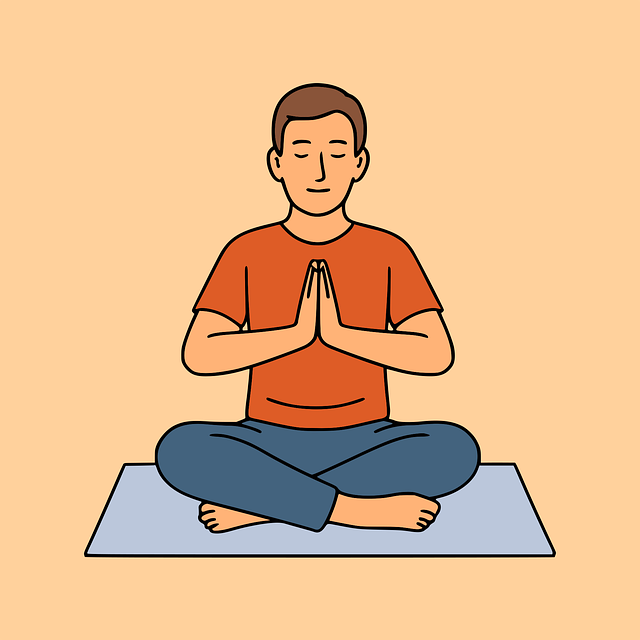Mindfulness meditation, facilitated by Centennial Geriatrics Therapy, is a powerful tool for seniors seeking mental wellness. This ancient practice, involving breathing exercises, body scans and visualizations, aids in stress reduction, focus improvement, and emotional calmness, addressing issues like chronic pain and social isolation. Creating a dedicated home space with soft lighting and nature-themed elements enhances the experience. Regular practice, combined with journaling and stress management techniques, offers clarity and anxiety relief. Centennial Geriatrics provides tailored meditation techniques, including breath awareness, progressive muscle relaxation, and guided imagery for stress management and crisis intervention. Self-assessment, setting achievable goals, overcoming challenges like noise and consistency, and exploring conflict resolution techniques are vital for tracking progress and enhancing mental wellness.
Discover the transformative power of mindfulness meditation with our comprehensive guide tailored for geriatric care. Learn how this ancient practice can enhance quality of life, reduce stress, and improve cognitive function among seniors. We’ll walk you through setting up a nurturing home practice, offering effective techniques and exercises, and tracking progress. Additionally, we address common challenges to ensure your journey is smooth. Embrace Centennial Geriatrics Therapy and unlock the benefits of mindfulness meditation for a peaceful and balanced life.
- Understanding Mindfulness Meditation for Geriatric Care
- Setting Up a Centennial Therapy Practice at Home
- Techniques and Exercises for Effective Meditation
- Tracking Progress and Overcoming Common Challenges
Understanding Mindfulness Meditation for Geriatric Care

Mindfulness meditation has gained significant attention as a beneficial practice for geriatric care, offering a gentle and effective approach to enhancing mental wellness among seniors. This ancient technique encourages individuals to focus on the present moment, cultivating awareness of one’s thoughts, feelings, and bodily sensations without judgment. For elderly individuals, mindfulness can be a powerful tool to navigate age-related challenges, such as chronic pain, cognitive decline, and social isolation.
Centennial Geriatrics Therapy emphasizes the importance of understanding mindfulness meditation as a complementary therapy. By incorporating practices like breathing exercises, body scans, and guided visualizations, caregivers and therapists can support geriatric clients in reducing stress, improving focus, and fostering a sense of calm. Public Awareness Campaigns Development and Mental Wellness Coaching Programs Development can play a crucial role in educating both care providers and the general public about these practices, ultimately promoting better holistic care for the elderly population. Effective stress management is another key benefit, as mindfulness helps individuals develop a healthier relationship with their thoughts and emotions.
Setting Up a Centennial Therapy Practice at Home

Creating a dedicated space for mindfulness meditation at home can be a powerful way to integrate Centennial Geriatrics Therapy into your daily routine. Start by designating a quiet area, free from distractions, as your personal sanctuary. Transform this space into a peaceful haven by incorporating soft lighting, comfortable seating, and perhaps some soothing scents like lavender to promote relaxation. A clean, organized environment can significantly enhance your meditation experience.
Consider adding visual elements that inspire calmness, such as nature-themed artwork or a small indoor plant. Regularly practicing mindfulness at home, with the guidance of Mental Wellness Journaling Exercise and Stress Management techniques, can be an effective way to find clarity and reduce Anxiety Relief. Embrace this routine as a personal investment in your overall well-being.
Techniques and Exercises for Effective Meditation

Centennial Geriatrics Therapy emphasizes techniques and exercises tailored for effective meditation practice, focusing on both mental clarity and emotional balance. Mindfulness meditation is a powerful tool that involves observing your thoughts and feelings in the present moment without judgment. A simple exercise to begin with is focusing on the breath—noticing its rhythm and depth as it enters and leaves your body. This technique helps anchor you in the present, calming your mind and reducing stress.
Additionally, progressive muscle relaxation and guided imagery are beneficial exercises. The former involves systematically tensing and relaxing different muscle groups, promoting a sense of physical and mental detachment from tension. Guided imagery, on the other hand, encourages visualizing serene scenes or positive scenarios, helping to alleviate anxiety and foster a state of tranquility. These practices can be incorporated into daily routines, offering effective stress management and crisis intervention guidance for individuals seeking mental well-being.
Tracking Progress and Overcoming Common Challenges

Tracking your progress is an integral part of any mindfulness meditation practice, especially when guided by Centennial Geriatrics Therapy. Regular self-assessment allows you to recognize improvements in focus, stress reduction, and emotional regulation. Start by setting realistic goals, such as meditating for a certain number of minutes daily or focusing on specific aspects of awareness during each session. Over time, review your experiences, noting how your practice has evolved. This process provides valuable insights into what works best for you, encouraging a deeper connection with the process.
Challenges are inevitable when embarking on any new habit, and mindfulness meditation is no exception. Common hurdles include finding quiet spaces, maintaining consistency, and combating restless minds. To overcome these, consider incorporating creative solutions like using noise-canceling headphones or setting aside dedicated time each day. Additionally, exploring Conflict Resolution Techniques and Trauma Support Services from professionals can enhance your mental wellness journey. Remember that patience and persistence are key; every small step forward is a victory in itself.
Mindfulness meditation offers powerful benefits for geriatric care, transforming both practitioner and patient. By establishing a centennial geriatrics therapy practice at home, leveraging effective techniques and tracking progress, individuals can enhance mental well-being and navigate life’s challenges with greater ease. Remember that mindfulness is a journey, and each small step towards consistent practice brings profound changes. Incorporate these strategies into your routine to unlock the full potential of mindfulness meditation.


